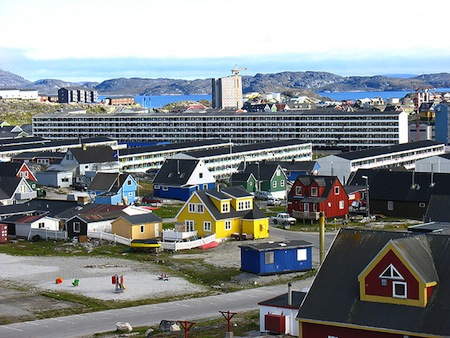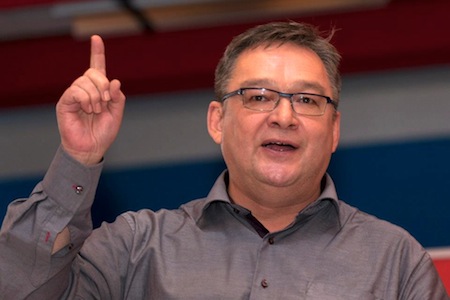It’s home to just 57,000 people, but when Greenland’s voters go to the polls on March 12, they will be choosing a path that could have global implications — for the European Union, the United States and China, and the future of the Arctic as an economically viable region, with climate change opening the far north to further development.![]()
![]()
The world’s largest island, Greenland is an ‘autonomous country’ within the Kingdom of Denmark, and the Danish have essentially ruled Greenland for centuries.
But that, like many things these days in Greenland, may be changing.
A strategic Arctic holding in a longtime Cold War ally
Denmark’s northern holdings — Iceland, Greenland, and the Faroe Islands — were key strategic locations during both World War I and World War II, giving them an outsized importance to the Allied powers in those wars. During World War II, U.S. and Allied forces used Keflavik airfield outside Reykjavík, in particular, as an important stop between North America and Europe. Germans attempted to occupy Greenland during World War II after occupying Denmark, but U.S. and Canadian forces protected the island from a full occupation, largely to protect its strategic power to the United States and Greenland’s valuable deposits of cryolite, an aluminum ore that was crucial to the Allied war effort — a hint of the battle shaping up today over Greenland’s mineral wealth.
Although Iceland gained its independence from Denmark in 1944, Greenland’s status as a Danish possession endured.
As the Cold War began, the U.S. continued to look to Greenland as an incredibly strategic holding — it allegedly offered Denmark $100 million to buy it in 1946 for its strategic use as an early warning station for any potential Soviet missile attacks on the U.S. mainland.
Denmark demurred, and as the Cold War wound down, relented in giving Greenland home rule in 1979 — Greenland’s capital, Godthåb, was renamed Nuuk, and it would now have its own parliament. Following a widely successful 2008 referendum, Greenland obtained further self-rule capabilities in 2009 — its parliament is now responsible for all but the most high-level foreign policy and defense decisions, and Danish is no longer an official language. Greenland controls its own security, judiciary, and it’s essentially up to Greenlanders to determine the future of its potential mineral wealth.
As a Danish province, Greenland became a member of what was then the European Economic Community in 1973, but following home rule, Greenland became the first — and so far, only — member to leave the EEC or its predecessor, the European Union in 1985.
Membership was never popular in Greenland, where fishing has traditionally been an incredibly important industry, so Greenlanders have never been enthusiastic about opening up its waters to European-wide competition and, potentially worse, overfishing Greenlandic waters. Iceland remains a EU holdout for many of the same reasons — despite talks for Icelandic accession to the EU, concessions for fishing rights would likely be a key precondition to any eventual Icelandic membership.
A geopolitical tussle over the promise of Greenlandic mineral wealth
The longtime suspicion of EU exploitation of Greenland’s economy is at the heart of the most recent war of words between Nuuk and Brussels — in advance of elections, Greenland’s prime minister Kuupik Kleist (pictured above) this week sent a warning to the European Commission that Greenland is looking not just to Europe, but to China as well, in the bid to open up the Arctic north’s mineral riches.
Kleist, one of Greenland’s most renowned musician, leads the Inuit Ataqatigiit (‘Community of the People’), a socialist and stridently pro-independence party that won election in 2009 after 30 years in opposition — just in time, perhaps ironically, to oversee the most rapid market-based transformation of Greenland in its history.
With the advent of global warming (here’s a clip of Kleist explaining climate change’s effect on his country), Greenland’s transforming into a more hospitable place — more moderate climates and melting ice means that it’s never been easier for mining companies to explore and extract the minerals buried deep under Greenland — government permits for exploration have skyrocketed from about 10 a decade ago to 150 today. Continue reading Greenland’s election a case study in climate change, sovereignty, China, the EU and the Arctic’s future

